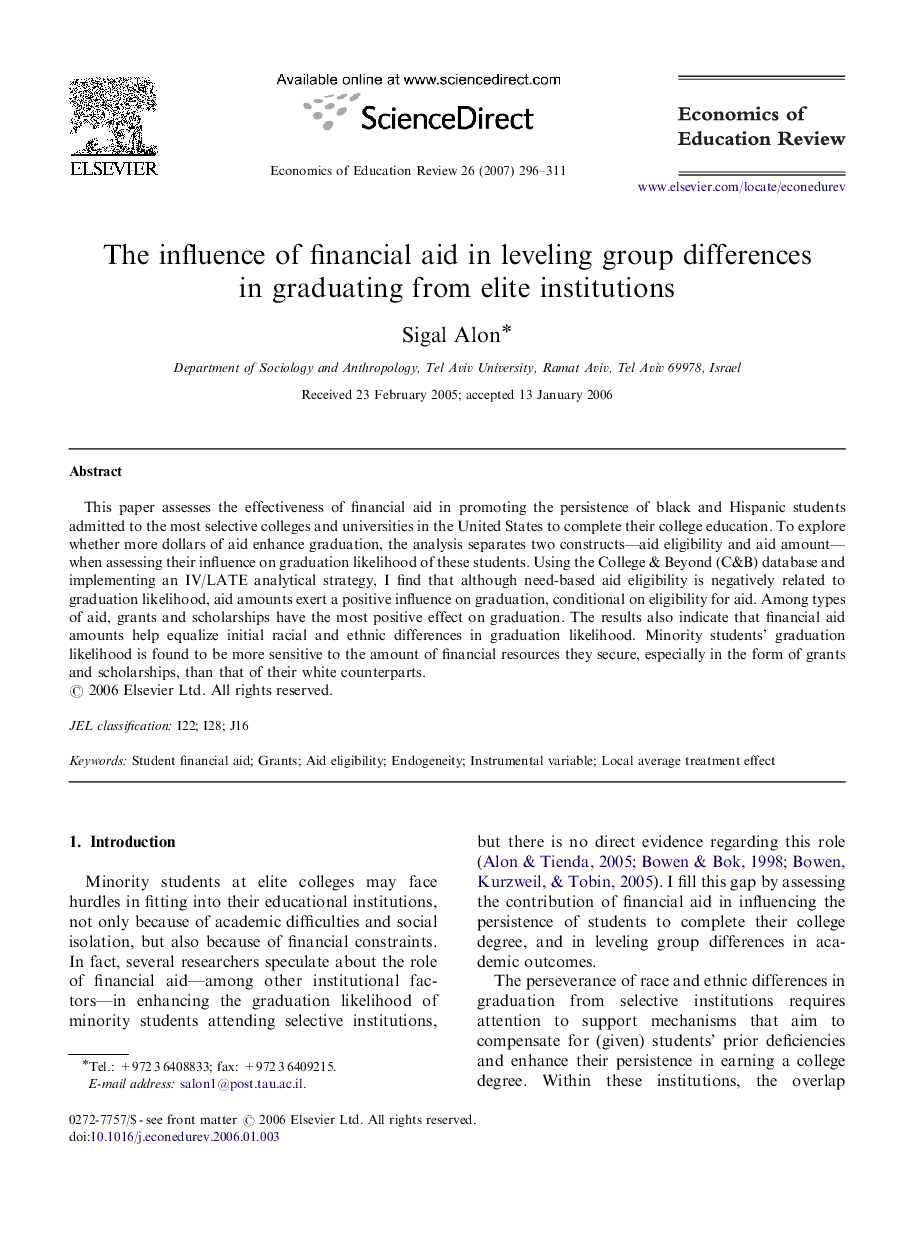| Article ID | Journal | Published Year | Pages | File Type |
|---|---|---|---|---|
| 355012 | Economics of Education Review | 2007 | 16 Pages |
This paper assesses the effectiveness of financial aid in promoting the persistence of black and Hispanic students admitted to the most selective colleges and universities in the United States to complete their college education. To explore whether more dollars of aid enhance graduation, the analysis separates two constructs—aid eligibility and aid amount—when assessing their influence on graduation likelihood of these students. Using the College & Beyond (C&B) database and implementing an IV/LATE analytical strategy, I find that although need-based aid eligibility is negatively related to graduation likelihood, aid amounts exert a positive influence on graduation, conditional on eligibility for aid. Among types of aid, grants and scholarships have the most positive effect on graduation. The results also indicate that financial aid amounts help equalize initial racial and ethnic differences in graduation likelihood. Minority students’ graduation likelihood is found to be more sensitive to the amount of financial resources they secure, especially in the form of grants and scholarships, than that of their white counterparts.
